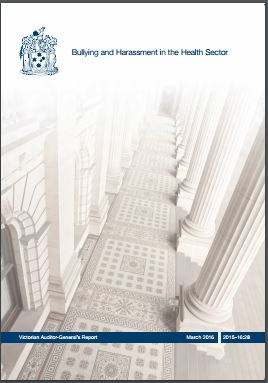More details are appearing of the findings of an independent inquiry into mental health and suicides in the Melbourne Metropolitan Fire Brigade (MFB), a report whose release has been stalled by the United Firefighters’ Union (UFU).
 According to the inquiry’s chair, in an article in the ABC news website, Dr Peter Cotton,
According to the inquiry’s chair, in an article in the ABC news website, Dr Peter Cotton,
“…the MFB has a mono-culture with few women or members from diverse backgrounds, making it difficult to assess the level of bullying and harassment.”
“… the MFB does not screen for alcohol or drug use, and has a lack of policies and procedures to address drug and alcohol issues.”
“Management’s handling of complaints were found to be ad hoc and inconsistent with a “lack of will to follow up” and “give them a wide berth” thought pattern.”
“the mental health of firefighters was comparable with Victoria Police and Ambulance Victoria,…”
The latter point is useful to remember as a similar report into the Victoria Police was released earlier this year. The most recent inquiry into Ambulance Victoria was undertaken by the Victorian Auditor-General in 2016.
Dr Cotton’s comments reinforce the link between workplace culture and workplace diversity, a link that occupational health and safety (OHS) professionals need to note in their workplace assessments. The lack of diversity is likely to be a contributing factor in incident investigations, for instance. It may also be more difficult to institute cultural change without varying the mix of employees. The work of Dr Dean Laplonge on male-dominated work cultures may also be relevant although diversity should not be limited to discussions of gender.
The lack of drug and alcohol testing and policies is a surprise for an industry that one would consider high-risk or one that would require a strong fitness-for-work approach.
The MFB has always been super-conscious of the potential industrial relations impacts of its management decisions.
The Australian newspaper ($) has revealed the UFU’s thoughts on the report via the UFU’s submission to the Fair Work Commission and a UFU Bulletin (not available online). The UFU believes the findings:
“… imply that the fire service is full of drunks and bullies, that firefighters engage in secondary employment cas (casual) jobs”.”
” … that alcohol and other drug use is significant, that sexism is pervasive, that inappropriate conversations involving sex and smut are common and that untold number of fireys are on second, third and fourth marriages, implying the breakdown in relationships is due to alcohol use”
“…claims the review team allegedly heard many stories from employees, particularly from women and others who are not typical Anglo-Celtic males, being marginalised or bullied.”
“The report claims that all women interviewed by the review team except one reported experiencing significant gender harassment, sexism and misogyny”
Quite often governments release controversial reports around holiday times or when the media and the community is distracted by other issues. The scheduled release of the Cotton Report yesterday would have given the issue of the the workplace culture at the MFB enormous attention. The delay by the UFU is having the effect of pushing the report’s release closer to the Christmas holiday/distraction period.
Regardless of the report’s release, when the author of a report begins talking to the media about the content of the report, delaying the release of the report is a nonsense. A more effective strategy would be to have allowed the release to occur and to disparage or contest the findings. As the MFB’s CEO says in The Australian , the report has not come as a surprise to the UFU:
“I would like employees to be aware that MFB advised the UFU of the review on 25 May and invited them to participate in a focus group,” Mr Higgins said in a message to staff. “Dr Cotton conducted this focus group at UFU headquarters on 23 June, and MFB provided a full copy of the draft report to the UFU on 3 October. We have sought throughout this process to make the sole focus the welfare of firefighters and other employees.”
As with the Australian Defence Forces, the Ambulance Service Victoria, Victoria Police and other similar organisations in other Australian States, the occupational hazards associated with the military-structured, male dominated cultures that have existed for decades are no longer acceptable. To retain the respect of the communities they serve and the people they employ, substantial cultural change is required and the OHS professionals can be leading these changes. The fire services almost need to analyse their core operations. What we are perhaps seeing in the UFU action is that this self-analysis will also examine the power relationships within those organisations and that may cause a very uncomfortable level of disruption.
It must be remembered through all of this political argy-bargy that the inquiry was established due to serious concerns about the mental health of firefighters and several suicides. The OHS justification for the inquiry is obvious.

Great article Kevin. Paralells with NSW Ambulance parliamentary inquiries in 2008 are clear, and reinforce your final point. http://www.ambulance.nsw.gov.au/Media/docs/081020councilreport-83758ed3-d308-46ff-8a4d-0882822581fa-0.pdf